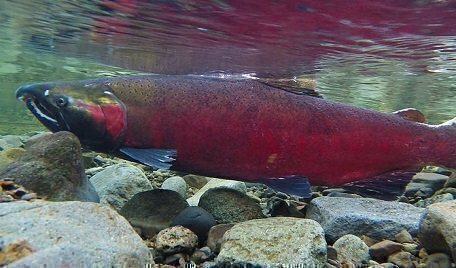On Monday morning, the Supreme Court let a federal appeals decision stand about tribal fishing rights in Washington state, when a majority of justices didn’t reach an opinion.
 In the 4-4 per curium decision, the Court said the Ninth Circuit appeals court ruling would remain in place. Justice Anthony Kennedy didn’t take part in State of Washington v. United States because he took part in an earlier decision from 1985, when he was on the federal circuit bench, related to the current case.
In the 4-4 per curium decision, the Court said the Ninth Circuit appeals court ruling would remain in place. Justice Anthony Kennedy didn’t take part in State of Washington v. United States because he took part in an earlier decision from 1985, when he was on the federal circuit bench, related to the current case.
Washington state attorney general Bob Ferguson wanted the Court to reconsider the Ninth Circuit decision that required his state redo its culvert system under its roads to allow for the safe migration of salmon.
Ferguson said the ruling would cost “billions of dollars” and the salmon-passage requirements exceeded the intent of a series of treaties from the 1850s made with northwest Indian tribes.
The case has been in the legal system since September 2001, when the federal government and several tribes sued Washington state. They claimed the existing culvert system kept the tribes from catching enough fish to make “a moderate living.”
The Suquamish Indians as tribal respondents sided with the Justice Department. “The Treaties secure the right of taking fish, at all usual and accustomed grounds. Washington’s barrier culverts undermine that right by preventing the fish from getting to their spawning grounds—and to the Tribes’ fishing grounds,” they told the Court.
The Justice Department also contended Washington state overstated its estimate for replacing the culverts at $2.3 billion; that the state’s salmon supply was noticeably reduced by the culvert system; and that the state violated its Indian treaties.
Scott Bomboy is the editor in chief of the National Constitution Center.







